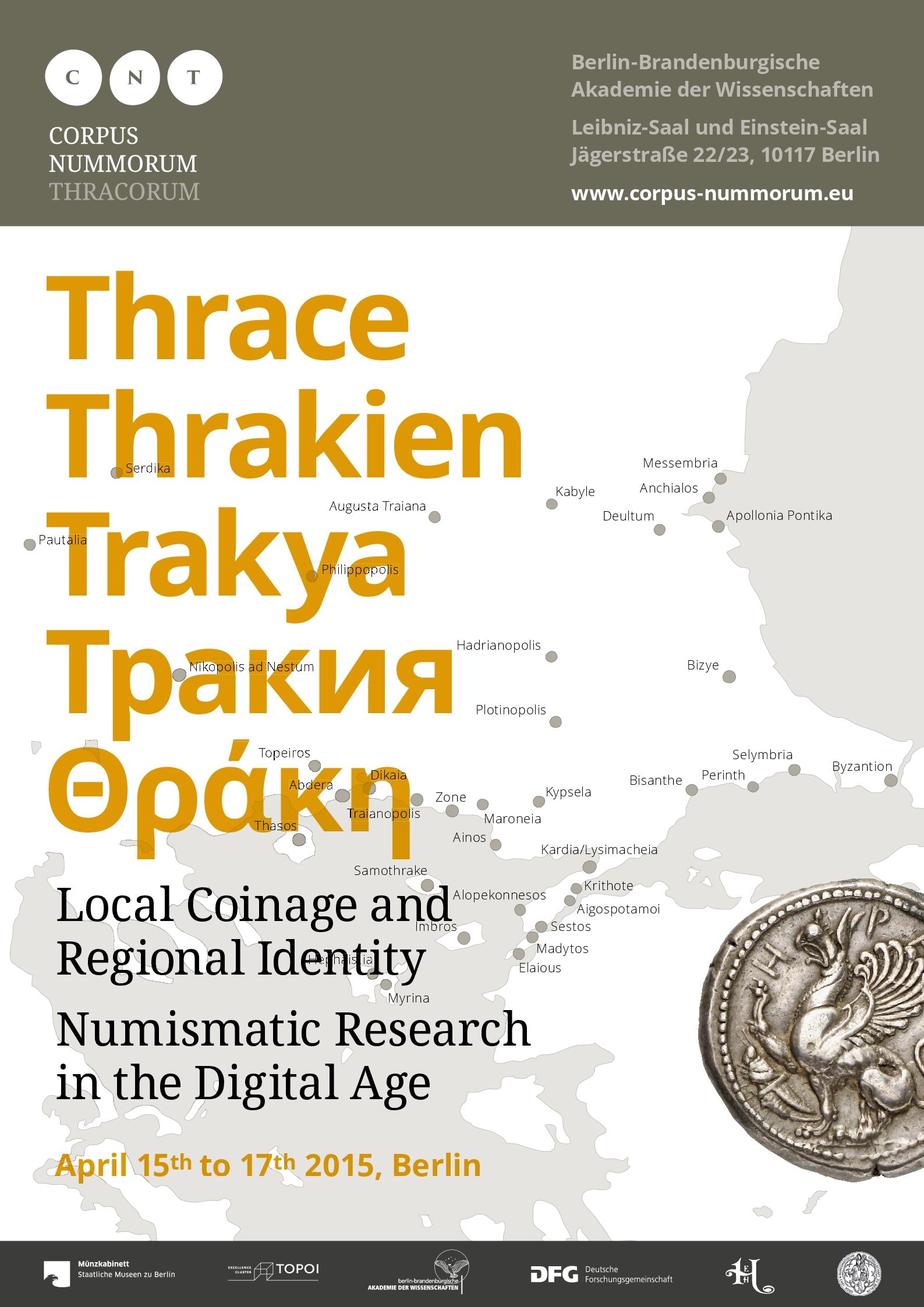Thrace - local coinage and regional identity: Numismatic research in the digital age

Abstracts of the talks and program of the conference now online!
Conference in Berlin,
April 15th to 17th 2015.
The coin issues from the historical territory of Thrace are known for their great diversity. In 2013 we began a research project on these various coinages. In our conference we plan to discuss the current state of numismatic research on Thrace and examine the opportunities offered by a cooperative compilation of coins in the digital age. The Berlin Brandenburg Academy of Sciences and Humanities and the Berlin Coin Cabinet thus cordially invite you to Berlin.
The conference will consist of two parts: First there will be a workshop entitled ‘The ancient coins of Thrace. The numismatic web portal www.corpus-nummorum.eu’. This workshop will present our web portal as a useful research tool for Thracian coinage and will show how using the database allows an all-encompassing diachronic and synchronous comparison of Thracian coin types. The portal is connected with other international projects on the compilation of ancient Greek coin types. We hope to expand the portal with your cooperation and involvement!
The second part of the conference will concentrate on a historical-numismatic question: Is it possible to trace in the various and, at the first glance, quite different local Thracian coinages a specific Thracian identity? This question requires above all a discussion regarding the regional forms that developed within this Greek phenomenon of minting and monetized economy. Can indigenous traditions be found beneath the Greek and Roman iconography? The same question can be asked concerning the political and economic use of coinage. Here the main focus concerns to what extent the coinages of the 44 known Thracian mints reflect or propagate local, regional or collective Thracian identities. A diachronic view is in this case particularly important. How can social, economic and administrative changes cause transformations of local constructs of identity? In what ways is coinage used as an instrument of authority in Thrace? In addition internal structures - geographical, ethnic or political - should be, wherever feasible from the coinage, examined: Is it possible to subdivide the greater area of Thrace on the basis of the designs of its coinage and the practiced monetized economy? Which elements during which periods were responsible for creating identity? What roles did myths, historical events and buildings play? Do meaningful themes exist for the construction of Thracian identity, which also cover longer periods of time and are consistently mirrored in coin types?
To discuss these and more subjects we are looking forward to welcoming you next year in Berlin!
